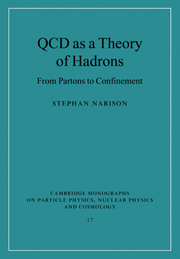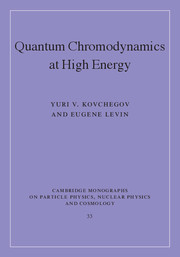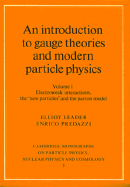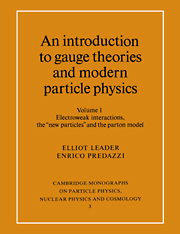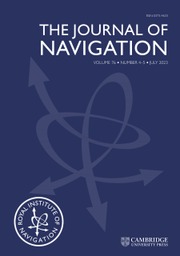QCD as a Theory of Hadrons
Introducing the basic theory and recent advances in QCD, this book reviews the historical development of the subject up to the present day, covering aspects of strong interactions such as the quark and parton models, the notion of colors and the S-matrix approach. The author then discusses QCD and QED as gauge theories, renormalization procedures, QCD hard processes in hadron collisions, hadron jets, and the different non-perturbative aspects of QCD.
- A thorough and pedagogical introduction to the method of QCD spectral sum rules
- Covers the historical development of the subject as well as the progress made
- Author has excellent reputation in the field
Product details
December 2007Paperback
9780521037310
812 pages
244 × 170 × 43 mm
1.251kg
160 b/w illus. 50 tables
Temporarily unavailable - available from TBC
Table of Contents
- About Stephan Narison
- Outline of the book
- Preface
- Acknowledgements
- Part I. General Introduction:
- 1. A short flash on particle physics
- 2. The pre-QCD era
- 3. The QCD story
- 4. Field theory ingredients
- Part II. QCD Gauge Theory:
- 5. Lagrangian and gauge invariance
- 6. Quantization using path integral
- 7. QCD and its global invariance
- Part III. MS scheme for QCD and QED: Introduction
- 8. Dimensional regularization
- 9. The MS renormalization scheme
- 10. Renormalization of operators using the background field method
- 11. The renormalization group
- 12. Other renormalization schemes
- 13. MS scheme for QED
- 14. High-precision low-energy QED tests
- Part IV. Deep Inelastic Scattering at Hadron Colliders:
- 15. OPE for deep inelastic scattering
- 16. Unpolarized lepton-hadron scattering
- 17. The Altarelli-Parisi equation
- 18. More on unpolarized deep inelastic scatterings
- 19. Polarized deep-inelastic processes
- 20. Drell-Yan process
- 21. One 'prompt photon' inclusive production
- Part V. Hard Processes in e+e– Collisions: Introduction
- 22. One hadron inclusive production
- 23. gg scatterings and the 'spin' of the photon
- 24. QCD jets
- 25. Total inclusive hadron productions
- Part VI. Summary of QCD Tests and as Measurements
- Part VII. Power Corrections in QCD:
- 26. Introduction
- 27. The SVZ expansion
- 28. Technologies for evaluating Wilson coefficients
- 29. Renormalons
- 30. Beyond the SVZ expansion
- Part VIII. QCD Two-Point Functions:
- 31. References guide to original works
- 32. (Pseudo)scalar correlators
- 33. (Axial-)vector two-point functions
- 34. Tensor-quark correlator
- 35. Baryonic correlators
- 36. Four-quark correlators
- 37. Gluonia correlators
- 38. Hybrid correlators
- 39. Correlators in x-space
- Part IX. QCD Non-Perturbative Methods:
- 40. Introduction
- 41. Lattice gauge theory
- 42. Chiral perturbation theory
- 43. Models of the QCD effective action
- 44. Heavy quark effective theory
- 45. Potential approaches to quarkonia
- 46. On monopole and confinement
- Part X. QCD Spectral Sum Rules:
- 47. Introduction
- 48. Theoretical foundations
- 49. Survey of QCD spectral sum rules
- 50. Weinberg and DMO sum rules
- 51. The QCD coupling as
- 52. The QCD condensates
- 53. Light and heavy quark masses, etc.
- 54. Hadron spectroscopy
- 55. D, B and Bc exclusive weak decays
- 56. B0(s)-B0(s) mixing, kaon CP violation
- 57. Thermal behaviour of QCD
- 58. More on spectral sum rules
- Part XI. Appendix A: physical constants and unites
- Appendix B: weight factors for SU(N)c
- Appendix C: coordinates and momenta
- Appendix D: Dirac equation and matrices
- Appendix E: Feynman rules
- Appendix F: Feynman integrals
- Appendix G: useful formulae for the sum rules
- Bibliography
- Index.

